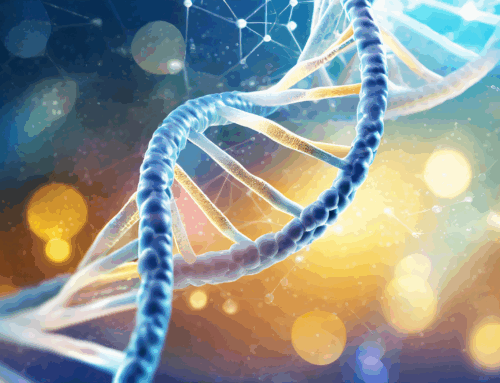Menopause is a significant phase in a woman’s life, marking the end of her reproductive years.
This natural biological process occurs when the ovaries stop producing eggs and hormone levels, particularly estrogen and progesterone, decline.
While menopause is often accompanied by uncomfortable symptoms, many women seek natural, holistic treatments to manage the transition.
Both holistic practitioners and naturopathic doctors (NDs) offer complementary, patient-centered approaches that emphasize balance, natural remedies, and lifestyle modifications to alleviate menopausal symptoms and promote overall well-being.
What is Menopause?
Menopause typically occurs between the ages of 45 and 55, with the average age being 51. A woman is considered to have reached menopause after 12 consecutive months without a menstrual period. Menopause is preceded by perimenopause, a transitional phase marked by hormonal fluctuations that can last for several years.
Common Symptoms of Menopause:
- Hot Flashes and Night Sweats: Sudden feelings of warmth, often accompanied by sweating, are among the most common symptoms of menopause
- Vaginal Dryness: Decreased estrogen levels can lead to vaginal dryness and discomfort during intercourse
- Mood Changes: Anxiety, depression, and mood swings are common emotional symptoms experienced during menopause
- Sleep Disturbances: Night sweats and anxiety can interfere with sleep, leading to fatigue and irritability
- Weight Gain: A slowed metabolism during menopause often results in weight gain, particularly around the abdomen
- Decreased Libido: Lower levels of estrogen can affect sexual desire and response
- Bone Loss: The decrease in estrogen contributes to a loss of bone density, increasing the risk of osteoporosis
How Holistic Practitioners and Naturopathic Doctors Approach Menopause
Holistic practitioners and naturopathic doctors share a common philosophy: the belief in the body’s inherent ability to heal itself when given the right support.
Both use similar strategies to address the root causes of menopausal symptoms, seeking to restore balance through natural treatments.
Their approaches focus on nutrition, herbal remedies, lifestyle changes, and emotional well-being to help women transition through menopause with ease and grace.
Hormone Balance with Herbal Remedies
Both holistic practitioners and NDs frequently use herbal remedies to help manage menopausal symptoms by balancing hormone levels naturally.
- Phytoestrogens: Herbs like red clover and black cohosh contain phytoestrogens and can alleviate hot flashes, night sweats, and vaginal dryness
- Adaptogenic Herbs: Holistic and naturopathic practitioners often recommend adaptogens such as ashwagandha, holy basil, and Rhodiola to help the body adapt to hormonal fluctuations, reduce stress, and improve energy levels
- Chasteberry (Vitex): Known for its ability to support progesterone production, chasteberry is used to balance the hormonal shifts that occur during menopause, helping to stabilize mood swings and reduce breast tenderness
Nutritional Support and Diet
Nutrition is foundational in both holistic and naturopathic approaches to managing menopause. Dietary recommendations are designed to support hormone balance, reduce inflammation, and prevent chronic conditions associated with menopause, such as heart disease and osteoporosis.
- Whole-Food Diet: Both NDs and holistic practitioners emphasize the importance of a nutrient-dense, whole-food diet that includes plenty of fruits, vegetables, lean proteins, and healthy fats. This diet helps regulate blood sugar levels, reduce weight gain, and promote heart health.
- Calcium and Magnesium: To support bone health, practitioners often recommend calcium-rich foods (like leafy greens, almonds, and fortified plant-based milk) alongside magnesium, which helps with calcium absorption and muscle relaxation, reducing the risk of bone loss and cramps
- Omega-3 Fatty Acids: Foods high in omega-3 fatty acids, such as fatty fish (salmon, sardines), flaxseeds, and walnuts, are encouraged to reduce inflammation, support brain health, and alleviate mood swings or depressive symptoms during menopause
- Organ and Glandular Supplements: Supplements are used to support the reproductive system, such as those that support the HPA (hypothalamus, pituitary, adrenal) axis, ovaries, uterus, and liver
Mind-Body Therapies and Stress Reduction
![]() Menopause is not just a physical transition; it is also an emotional and psychological one. Holistic and naturopathic practitioners place a strong emphasis on stress reduction and emotional well-being, using mind-body therapies to help women cope with the changes that occur during this time.
Menopause is not just a physical transition; it is also an emotional and psychological one. Holistic and naturopathic practitioners place a strong emphasis on stress reduction and emotional well-being, using mind-body therapies to help women cope with the changes that occur during this time.
- Yoga and Meditation: Both groups recommend mind-body practices like yoga, meditation, and deep breathing exercises to reduce stress, improve mood, and promote better sleep. These practices also support hormonal balance by lowering cortisol levels, the stress hormone that can exacerbate menopausal symptoms
- Acupuncture: Acupuncture is commonly used by both holistic and naturopathic practitioners to relieve hot flashes, improve sleep, reduce anxiety, and balance hormone levels by stimulating specific energy points in the body
- Reiki and Reflexology: To unblock energy that is blocked or unbalanced in order to allow energy to flow freely and alleviate emotional and physical menopausal symptoms
Emotional and Spiritual Support
![]()
 Both holistic practitioners and naturopathic doctors recognize the emotional challenges that accompany menopause, including feelings of loss or identity shifts as women leave their reproductive years. They provide emotional and spiritual support to help women navigate this life transition with resilience and grace.
Both holistic practitioners and naturopathic doctors recognize the emotional challenges that accompany menopause, including feelings of loss or identity shifts as women leave their reproductive years. They provide emotional and spiritual support to help women navigate this life transition with resilience and grace.
- Counseling and Life Coaching: Some practitioners offer emotional counseling, life coaching, or mindfulness-based stress reduction (MBSR) to help women cope with mood swings, anxiety, or depression that may arise during menopause.
- Bach Flower Mixtures: This is used o realign emotions experienced at varying levels during menopause, such as disrupted sleep, mood swings, sadness, and/or enduring a change. A mixture may include walnut, rescue, beech, and mustard.
- Community Support: Group classes, support circles, or retreats are often suggested to help women feel connected to others going through similar experiences. This community support can be especially empowering for women dealing with emotional challenges.
Lifestyle Modifications
Both holistic and naturopathic approaches emphasize the importance of lifestyle changes to support health and well-being during menopause.
- Regular Exercise: Practitioners recommend regular physical activity, especially weight-bearing exercises like strength training, to maintain muscle mass, support bone density, and manage weight gain. Exercise also helps improve mood and reduce stress.
- Sleep Hygiene: Proper sleep is essential for managing menopause symptoms, and both types of practitioners offer sleep hygiene tips to improve rest. This may include establishing a regular sleep routine, creating a relaxing sleep environment, and using natural supplements like melatonin or magnesium to aid in sleep quality.
Integrative Care for Menopause
While both naturopathic doctors and holistic practitioners share similar approaches, they often work alongside conventional medical treatments when necessary.
Their integrative care model provides a personalized, whole-person approach to menopause, addressing not just the physical symptoms but also the emotional and spiritual aspects of this life transition.
Women who seek care from these practitioners benefit from a more natural, supportive approach that encourages balance and long-term well-being.
In the End…
Menopause is a natural yet challenging transition that brings about various physical, emotional, and hormonal changes.
Holistic practitioners and naturopathic doctors use many of the same approaches—such as herbal remedies, nutrition, mind-body therapies, and lifestyle modifications—to help women manage menopausal symptoms in a natural and supportive way.
By treating the root causes and focusing on whole-body health, these practitioners empower women to navigate menopause with greater ease, balance, and vitality.




